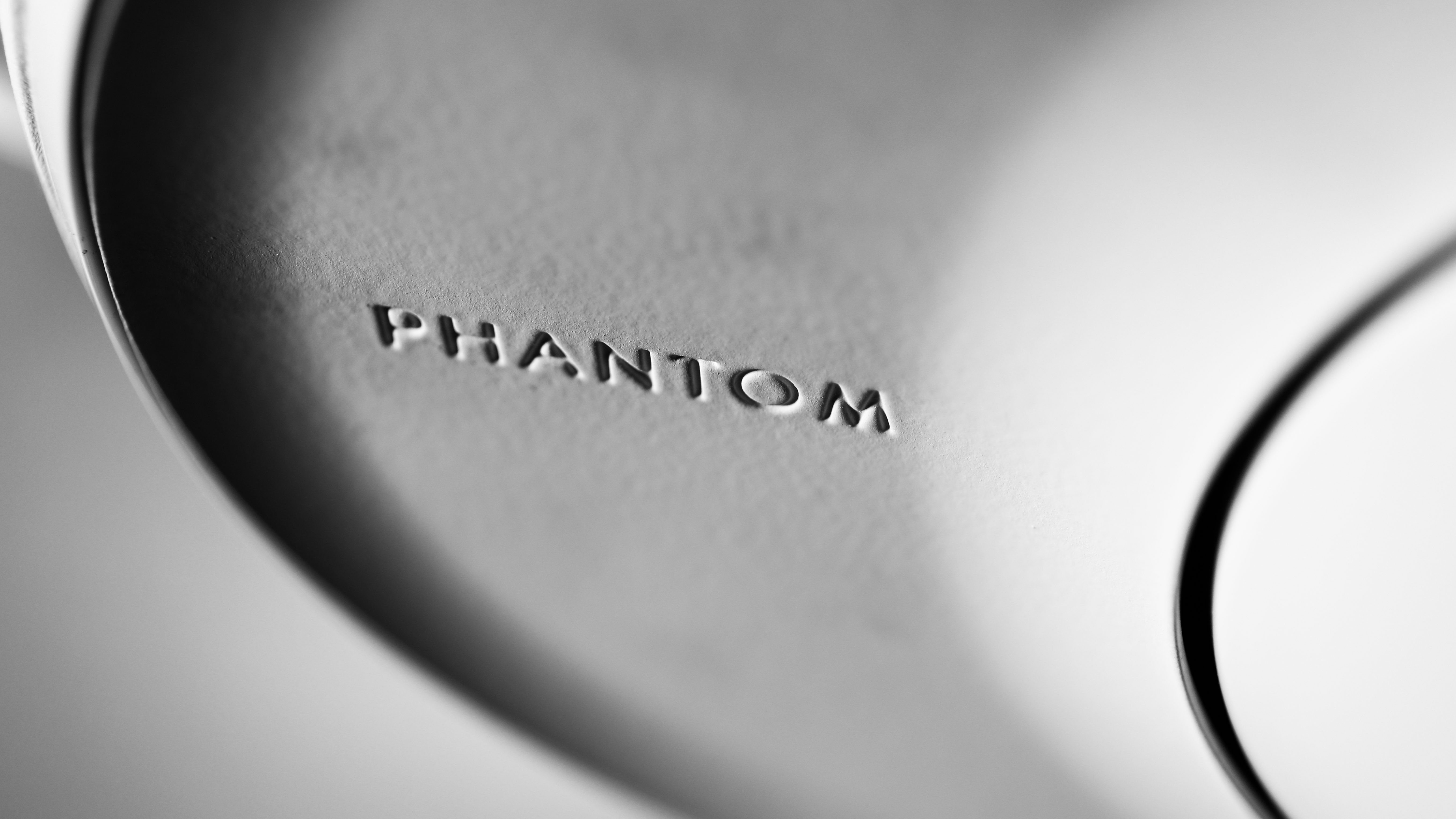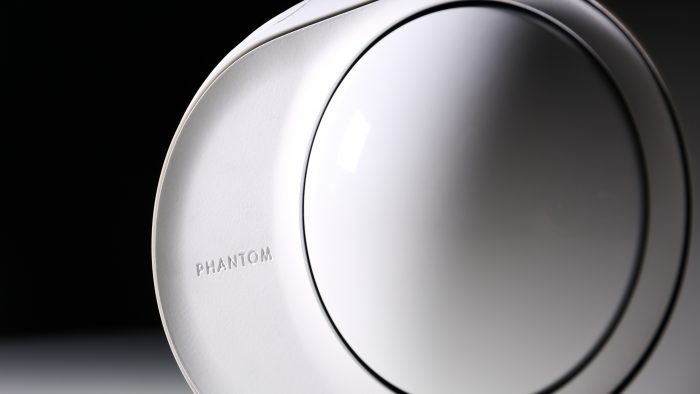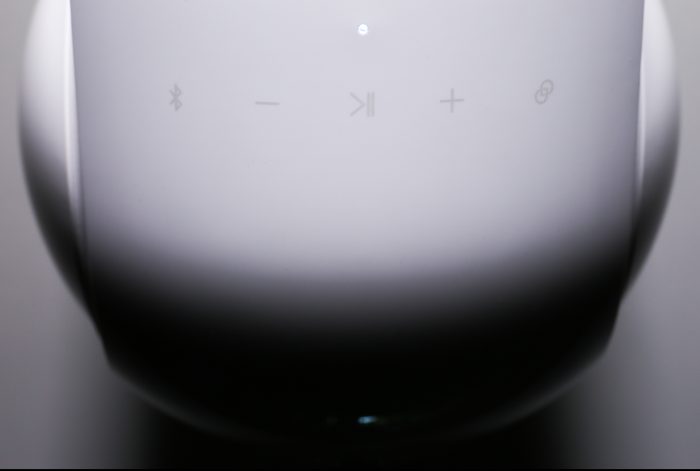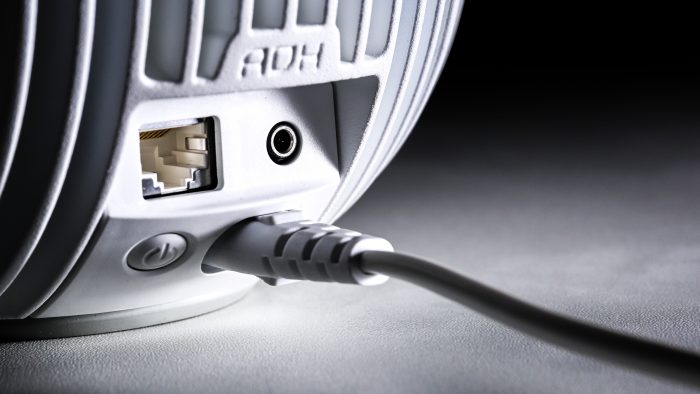Devialet’s 900 watt, wireless Phantom Reactor speaker (Review)
Devialet revolutionise the amount of power you’d expect to be possible in the size of their speakers. We got to experience that first hand.
We’ve been wanting to get our hands on a Devialet speaker since we first saw their incredible, face-melting Phantom speaker in 2015. In 2016 they launched their tour de force; the Gold Phantom with 4,500 watts of bone-rattling power. With this year’s launch of the more compact Phantom Reactor (still capable of an incredible noise) we put it to the test to hear for ourselves how Devialet have been changing the speaker game.
The Phantom Reactor takes things down a notch from its predecessors but still packs an impressive 900 watts of pure, un-distorted power. Coming in at the size of a slightly deflated football with it’s clean, ‘fresh-out-the-mothership’ aesthetic – the fact that this small speaker can push out so much sound is truly special.
We lugged it down to our large open studio downstairs to test it out at full volume with plenty of space. The first thing we noticed when we plugged it up and switched it on was the quality. Considering it has a big sound it sounds good. Really good. Probably the most impressive thing about our time with Devialet’s speaker is just how consistent the quality is whether it’s at the highest possible volume and shaking the walls or playing at its quietest depths.
With 900w behind it, the speaker is more than capable of filling a room with sound and the sound it produces travels better than any speaker of this size we’ve heard. When the Phantom Reactor is emitting music it travels distance, moving above, below, and around surfaces so it feels like it’s next to you even when you’re 20 metres away.
Whilst it’s a powerful speaker, it really is – when we were playing it full volume it felt like it needed just an extra notch of volume. Don’t get me wrong, it plays music *loudly* and is more than enough for a party, gathering, or any other reason you could have for loud music. Perhaps I’m tainted by my love of ear-bleeding levels for music, and the knowledge of its far louder older brother – the Phantom Gold.
It just felt like it needed one extra bar on the volume-up button. Me and a colleague were able to talk without raising our voices whilst standing next to it at full volume. I suppose it’s personal preference, and the context you’re using a Phantom Reactor in, as to whether that is a good feature or a small shame.
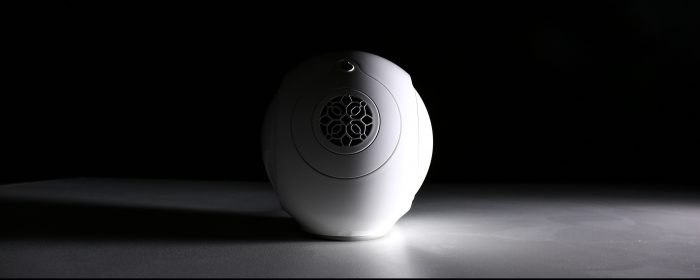
The Reactor is multi-directional but I found the sound was at its best when you’re standing anywhere in front of it’s geometrically carved sound hole. When standing anywhere on either side of it’s Heart Bass Implosion (HBI) panels the sound feels a little less enveloping but still brilliant.
Speaking of it’s HBI panels, they’re a truly amazing piece of technology. They are what allows for Phantom speakers to push out such large-sounding, incredible bass levels from such a small compact device. It makes for a truly impressive low-end and it also makes it look hella cool when it’s sides are shaking out of their casing.
Connecting your device up for playback is simple and intuitive. You can easily cast music from a Bluetooth device, plug it up with an auxiliary, or connect it to the internet for Airplay connectivity from the majority of major online casting features.
The companion app for the speaker brings all of its connectivity into one place however I was a little dissappointed in the features of the app. It lets you control the gain with total precision but there are no EQ settings which is a real shame as it would be nice to customise the levels to your preferences or to match the music you’re playing. The app does however have a very unique setting that lets you adjust the latency when connected by aux… which is pretty neat.
When it comes to the build of the the Reactor it’s a solid piece of equipment, it weighs a lot thanks to the sheer amount of kit inside it that creates its giant sound. The plastic coating feels tough and thick whilst metal panels on the side give it a robust, cold touch eliciting yet more of its alien allure.
All in all Devialet make a product that is quality and at times shocking with what it’s capable of. I feel like the majority of the awe lies in the original Phantom speakers but at a much smaller price the Reactor offers a lot of bang for it’s buck. Whether you would choose it over a similarly priced hi-fi system? That’s up to you.
The Phantom Reactor is available at 600 watts for £990 or the 900 watt version that we tried for £1,290. Both are sure to fill the home as an impressive sound system.
Find out more and get your own Phantom from the Devialet website.
